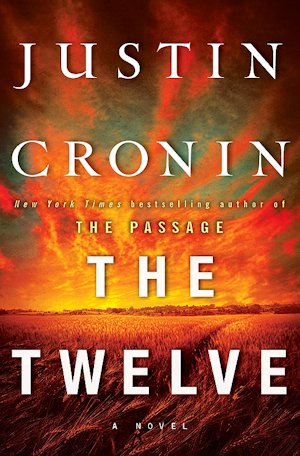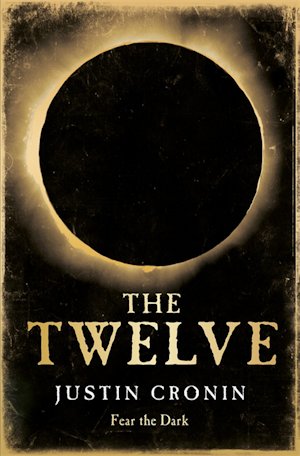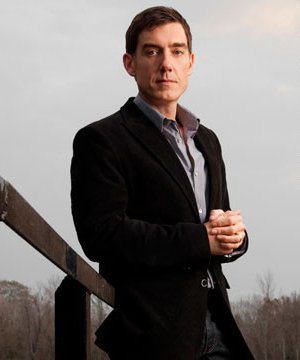Book Review: The Twelve by Justin Cronin
 | | The Twelve |
Everything is changing. There are fields full of virals who apparently committed mass suicide in the sun, and the eleven remaining members of the Twelve are not where they're supposed to be. Even Alicia Blades, the New Thing, and Amy, the Girl from Nowhere, are changing. A mysterious woman who can apparently control the virals has been sighted at the scene of a massacre, and something unusual is happening up north, where a man who has been alive for over a hundred years is building a massive structure with the help of a labor camp of slaves. Too many people have already been lost, and it's not looking good for the scattered remains of the human race.
This is The Twelve, Justin Cronin's follow-up to his massively successful The Passage. The main story takes place a few years after the cliffhanging epilogue of the previous book, but much of the novel once again takes place in Year Zero, immediately after the outbreak of the viral apocalypse that went on to ruin America. Surprisingly, Cronin revisits a couple of characters you wouldn't expect, such as the pregnant ex-wife of Brad Wolgast, Lila Kyle, and Lawrence Grey, the castrated sex offender who helped unleash the Twelve. As with The Passage, this extended backstory feeds into the main story in unpredictable ways, but a good portion of it--involving a busload of survivors trying to escape the madness--is only barely and tangentally tethered to the main story, rendering it largely irrelevant.
Cronin once again can't help but introduce several dozen new characters to flesh out his world, but his toolkit seems to be wearing a little thin as he recycles many character traits from The Passage, including the woman who has a baby that may or may not be her husband's. Indeed, there are lots of mothers and babies torn asunder in this plot, and it gets tiresome trying to sort them all out. By the time Cronin pulls the character-who-turns-out-to-be-the-child-of-some-other-character plot twist for the final time, it's neither surprising nor interesting.
 | | How come the UK gets a better cover? |
Like The Passage, the narrative depends on a great deal of coincidence and suspension of disbelief, and even though Cronin seems to be assuring us that there is a reason for all this serendipity and providence, his lack of any plausible explanation makes coincidence feel like the writer's crutch. If the final book in the trilogy fails to account for this, it will retroactively harm both of its predecessors.
Luckily, the handful of surviving characters from The Passage--including Peter, Alicia, Amy, Michael, and a few others--develop in good and fascinating ways, carrying the reader through the exhausting introductions of new characters you frankly have a hard time caring about. Peter is still the main hero, and his quest eventually has him leading a small band of misfits to a climactic battle with ridiculously poor odds of success. Alicia, always the outsider, finds herself slipping even further from the rest of humanity, though her determination to put an end to the Twelve is stronger than ever. Probably the most intriguing character development is that of Major Lucius Greer, a character who only appeared for the last act of the previous book but who has had to pay a heavy price for his assistance in taking out Babcock.
But no doubt the biggest change is in the virals themselves. They aren't as present as they were in The Passage, and they have taken on a more distinctly vampire flair. There are narrative reasons for this that make perfect sense, but it can be jarring for readers who aren't ready for the change, as it is jarring for our survivors, who have gotten too comfortable fighting the mindless hordes of the last installment. Without spoiling too much, it also becomes apparent pretty early on that Amy and Alicia are not as unique as we were made to believe, that there are other people out there with the modified virus running through their veins.
 | | I much prefer this dust jacket picture to the last one |
This story is, in other words, not at all what you expect it to be. The Passage ended with the promise that we would see our heroes hunting down the Twelve in their various home territories--and the title of this second part sure helps with that assumption--but it doesn't take long for the characters and the readers to realize that the story isn't going in that direction. For this reason--combined with the extended flashback to Year Zero that doesn't announce its importance--the first half of The Twelve can be a frustrating read. The good news is that Cronin's hypnotic writing style is as strong as ever, carrying you through long slogs of the seemingly unimportant exploits of characters you don't really know, and while he certainly takes his time getting there, when Cronin finally delivers his epic climax, it is worth the wait, topping even the most exciting parts of the previous story.
Still, The Twelve is a victim of its place in the middle of a trilogy. It lacks the novelty of the first book and the closure of the last (assuming the next book will have closure), and it is all too obvious throughout that we are not getting any real answers to our burning questions. It also doesn't have nearly as many action beats as its predecessor, saving most of its energy for the final moments. It's certainly a good read and a good book that gets you excited for the next (which will be called The City of Mirrors), but it's more methodical and meandering than it probably should be.
FINAL SCORE:





While incredibly well-written, deeply imaginative, and containing a jaw-dropping final act, The Twelve just can't get beyond the fact that it is a long bridge between two much bigger stories.
|
-e. magill 7/26/2013
|
|